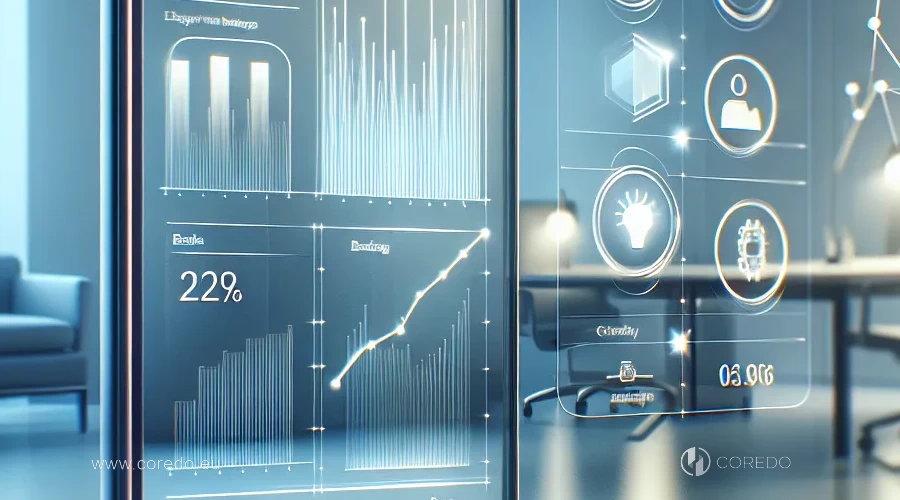Today, it is not enough just to know the rules – it is important to have practical tools that allow not only to comply with the updated requirements of company registration in the EU 2025 or company registration in Asia 2025 but also to effectively use new opportunities for growth. Over the years, the COREDO team has implemented dozens of projects for legal business support in the EU and Asia, helping clients adapt to legislative changes, minimize risks, and build sustainable corporate structures.
Key changes in company registration legislation in the EU and Asia in 2025

New company registration requirements in the EU 2025
In 2025, company registration in the EU underwent a series of fundamental changes affecting both documents for company registration in the EU 2025 and the procedure itself. One of the key innovations is mandatory digital identification of founders and the introduction of electronic signatures at all stages, which accelerated remote company registration in the EU and reduced risks of document forgery. COREDO practice confirms: now most EU countries require not only the standard set of founding documents but also confirmation of the source of funds, KYC forms, and disclosure of information about ultimate beneficiaries in accordance with the new beneficiary disclosure requirements 2025.
Updates in business registration rules in Asia 2025
Company registration in Asia 2025 has also become more transparent and technological. In Singapore and Hong Kong, the process of digital identification of founders and automation of KYC procedures became mandatory. A solution developed at COREDO for one of the fintech clients allowed integrating online verification through government platforms, which accelerated the establishment of companies with foreign founders in Asia and reduced legal risks of business registration in Asia.
Comparative table of changes in the EU and Asia
| Criterion | EU (2025) | Asia (2025) |
|---|---|---|
| Main documents | Certificate of incorporation, charter, KYC, AML | Founding documents, KYC, AML |
| Registration periods | 1–5 weeks (depends on the country) | 2–6 weeks (depends on the country) |
| Requirements for beneficiaries | Full disclosure, digital identification | Enhanced requirements, KYC, sanction lists |
| Remote registration | Implemented in many countries | Being gradually implemented, depends on jurisdiction |
| AML compliance | Strict, integration of digital solutions | Enhanced, automation of procedures |
| Features for high-risk business | Increased control, Licensing | Additional checks, restrictions |
Practical aspects of business registration in 2025: documents, timelines, remote procedures

Documents for company registration in the EU and Asia in 2025
COREDO’s experience shows that in 2025, the standard set of documents for company registration in the EU includes:
- certificate of incorporation and charter,
- confirmation of the legal address,
- digital identification of founders (video verification, eIDAS, BankID),
- KYC forms and information about beneficiaries,
- confirmation of the source of funds,
- electronic signatures.
Remote company registration and digitalization of procedures
Remote company registration in the EU has become standard for most jurisdictions. The COREDO team implemented projects where electronic submission of documents and the introduction of electronic signatures allowed clients to complete all registration stages in 7–10 days. A key condition is the correct digital identification of founders and the integration of AML services into business processes. In Asia, the automation of legal procedures is developing unevenly: it is already the norm in Singapore and Hong Kong, while in other countries it is being implemented gradually.
Timelines and cost of company registration in various European and Asian countries
The timelines for company registration in different EU countries range from 1 week (Estonia, Cyprus) to 4–6 weeks (United Kingdom, Luxembourg) for complex structures. In Asia, registration takes 2–6 weeks, depending on the jurisdiction and the completeness of due diligence of founders. The cost depends on the chosen country, the volume of legal services for company registration, and the need for licensing of certain types of activities. For business immigration to Europe, timelines may increase due to additional checks and the issuance of a business visa for founders.
AML compliance and beneficiary disclosure: new challenges for businesses

AML compliance for new companies in the EU and Asia
AML compliance for new companies in 2025 requires not only standard KYC procedures but also the integration of digital solutions for financial monitoring of new companies. In the EU, automated data exchange between registrars and banks became mandatory, allowing potential risks to be identified at an early stage. In Asia, compliance procedures for business registration have been tightened: banks require transparency of the corporate structure, the appointment of a compliance officer, and regular reports on funds movements.
New requirements for beneficiary disclosure and confidentiality
In 2025, new requirements for beneficiary disclosure 2025 came into effect: now all EU countries and most Asian jurisdictions require full disclosure of ultimate owners, including digital identification of founders and checks against sanctions lists. A solution developed at COREDO allows automating due diligence of founders and reducing legal risks of business registration in Asia. However, increased transparency reduces business confidentiality – balancing this becomes a key challenge for owners.
Liability of directors and corporate governance
The liability of directors during company registration in 2025 has significantly increased: significant fines and even criminal liability are provided for inaccurate information about beneficiaries and non-compliance with compliance procedures. Effective corporate governance requires the introduction of ESG criteria for new companies, regular compliance officer training, and automation of internal control processes.
Bank requirements and financial monitoring for new companies

Opening corporate accounts and banking requirements in the EU and Asia
Banking requirements for new companies in the EU have become stricter: banks require not only standard KYC documents but also confirmation of business reputation, a business plan, information about the corporate structure, and the source of funds. For high-risk businesses and foreign founders, opening corporate accounts in European banks is possible only if full AML compliance is met and transparency of all transactions is ensured. COREDO’s experience shows: to avoid bank rejection when opening a new company account in Europe, it is important to prepare a complete set of documents in advance and conduct preliminary due diligence of founders.
Financial reporting, audit, and tax benefits for new companies
Corporate reporting in the EU and Asia in 2025 requires not only the timely submission of financial reports but also the integration of ESG criteria data. For new companies in Europe, tax benefits are available, especially in the IT and innovation sectors, provided agreements on the avoidance of double taxation and international tax planning are observed. In Asia, the emphasis is on transparency and automation of financial monitoring and reporting, which reduces risks for investors and partners.
Features of registration of companies with foreign capital and high-risk businesses

Registration of companies with foreign founders in Asia and Europe
Registering a company with foreign founders in Asia and Europe requires enhanced due diligence of founders, confirmation of the source of funds, and often obtaining a business visa for founders. The COREDO team successfully supported projects where business immigration to Europe was carried out through creating SPV structures, optimizing the tax burden, and ensuring transparency of corporate governance.
Features of registration of high-risk and IT companies in the EU and Asia
Features of registering high-risk businesses in Europe and Asia include mandatory licensing of certain activities, additional checks against sanctions lists, and the implementation of regulatory sandboxes for testing innovative business models. For IT companies in Europe, special support programs are in place, including accelerated registration, tax benefits, and intellectual property protection. A solution implemented by COREDO for a fintech client allowed obtaining an EU license in record time through the automation of legal procedures and integration of AML services.
Innovations and automation: new tools for registration and business management
Automation of legal procedures and digital identification
ESG criteria and their impact on company registration in Europe
The integration of ESG criteria for new companies in Europe becomes a mandatory element of corporate reporting. Companies that integrate ESG approaches in corporate governance and financial monitoring gain access to additional benefits and investment programs. A solution by COREDO for a client in the Czech Republic not only reduced audit costs but also increased the business’s investment attractiveness due to transparency and sustainability.
Selecting jurisdiction and business scaling strategy in 2025
The best countries for registering businesses and IT companies in Europe and Asia
In 2025, the best countries for registering an IT company in Europe: Estonia, Cyprus, Czech Republic, thanks to flexible corporate legislation, low tax rates, and the possibility of remote company registration in the EU. For business scaling in Asia, Singapore and Hong Kong are the most attractive: here, the minimum capital requirements, developed infrastructure, and fast procedures for opening a company abroad 2025.
Strategies for minimizing legal and compliance risks
Best practices for managing legal risks when entering EU and Asia markets include:
- conducting comprehensive due diligence of founders and partners,
- appointing an experienced compliance officer,
- regular monitoring of sanctions lists,
- automation of compliance procedures,
- integration of digital AML services.
Key takeaways and practical recommendations for entrepreneurs and executives
Checklist for registering a company in the EU/Asia in 2025:
- Prepare a complete set of founding documents considering new beneficiary disclosure requirements.
- Complete digital identification of founders and ensure electronic submission of documents.
- Appoint a compliance officer and integrate AML services into business processes.
- Select a jurisdiction taking into account industry requirements, tax benefits, and remote registration opportunities.
- Conduct due diligence of founders and partners, check against sanctions lists.
- Prepare a business plan and documents for opening corporate accounts in European or Asian banks.
- Implement ESG criteria and automate corporate reporting.